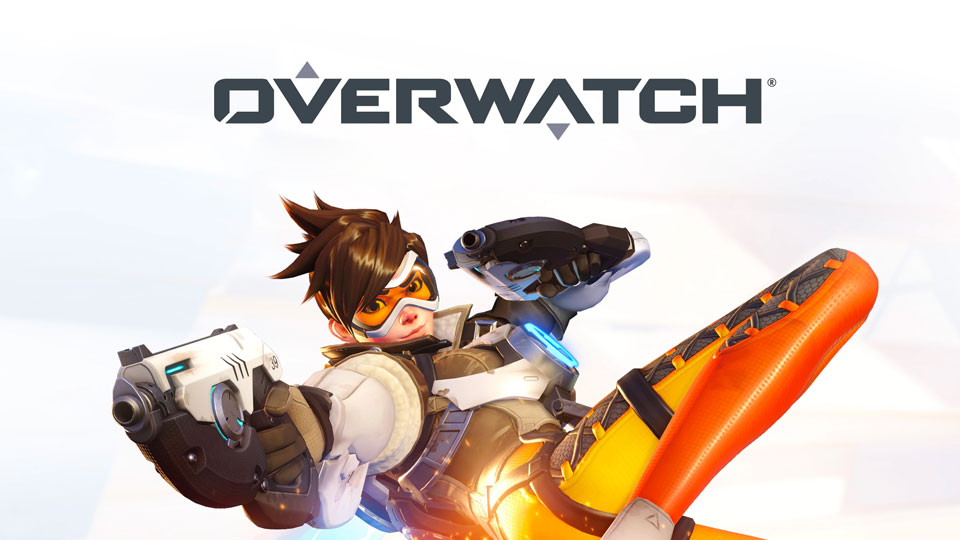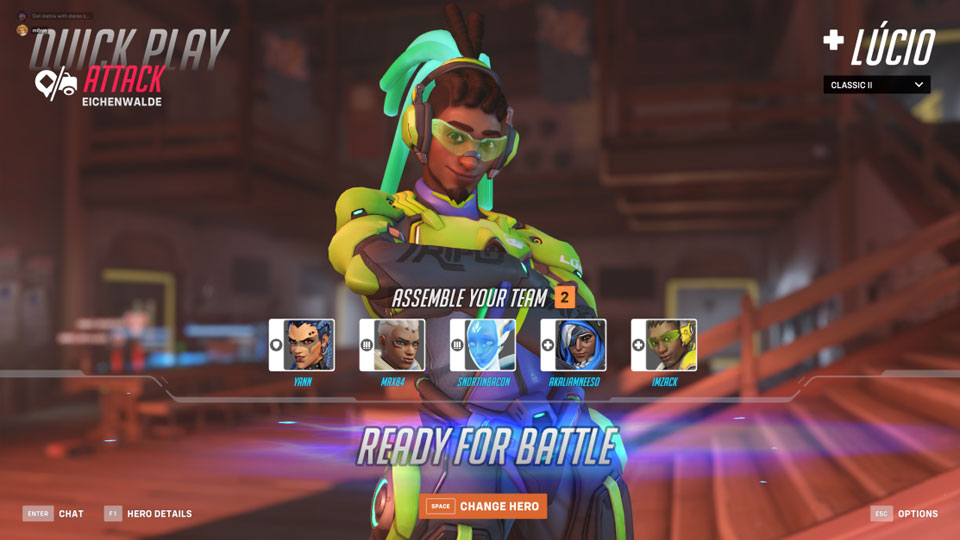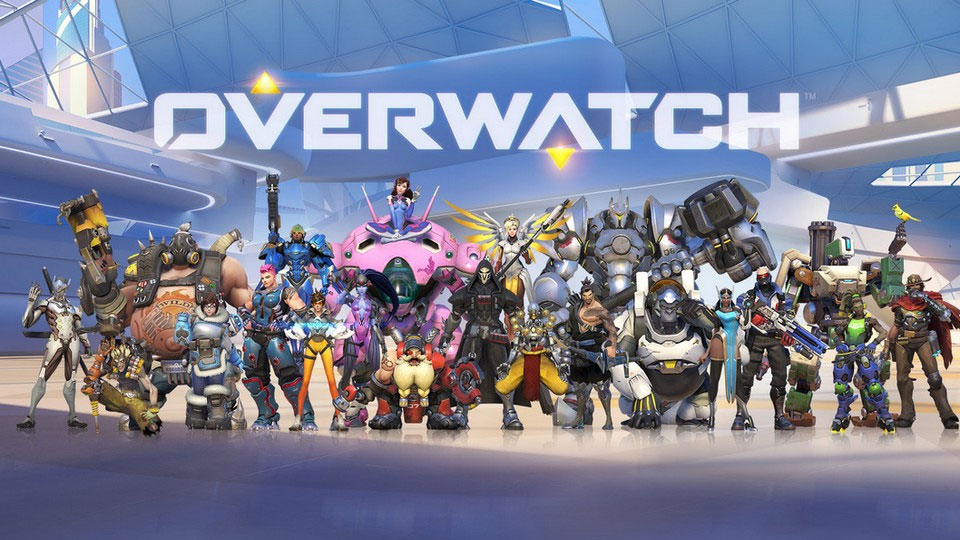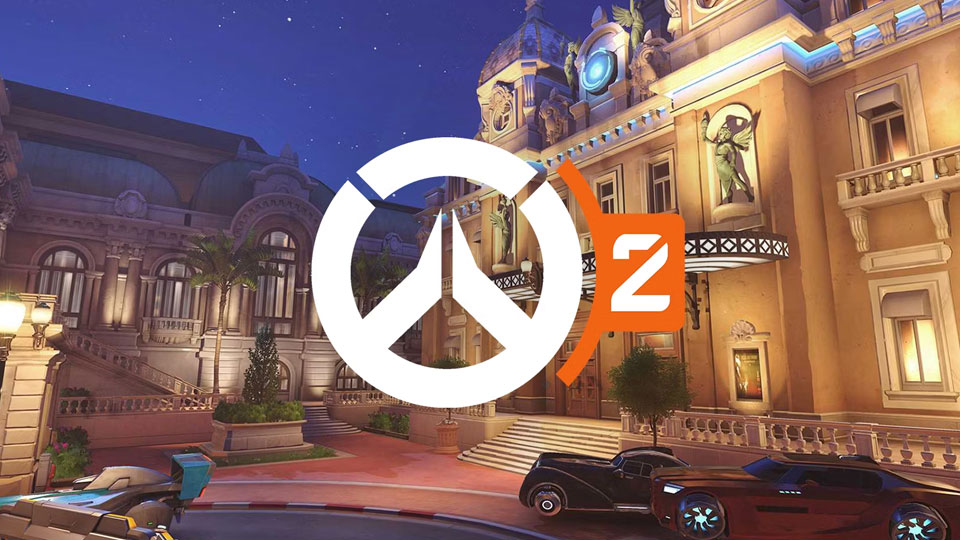Overwatch, developed and published by Blizzard Entertainment, has made a significant impact on the gaming landscape since its release in May 2016. This team-based first-person shooter (FPS) combines fast-paced action, strategic team play, and a diverse roster of characters, each with unique abilities and playstyles. This blog will explore the key features, gameplay mechanics, heroes, maps, community reception, competitive scene, and future potential of Overwatch on PC.

Overwatch has redefined the team-based shooter genre with its blend of unique characters, vibrant art style, and engaging gameplay. Set in a futuristic world with a rich backstory, the game has captivated millions of players worldwide. This comprehensive guide will delve into what makes Overwatch a standout title on PC, examining its gameplay, community, and future prospects.
The Evolution of Overwatch
Overwatch began as a spiritual successor to Blizzard’s canceled MMO project, Titan. The development team repurposed elements from Titan to create a new type of shooter focused on heroes with distinct abilities. Since its release, Overwatch has received regular updates, adding new heroes, maps, and game modes, and evolving through player feedback and community engagement.
Gameplay
Objective-Based Gameplay
Overwatch’s gameplay revolves around completing objectives rather than simply achieving the highest number of eliminations. This focus on objectives promotes teamwork and strategy.
- Capture Points: Teams must secure designated areas on the map to progress.
- Payload: One team escorts a payload to a delivery point while the other team attempts to stop them.
- Hybrid: Combines capture points and payload objectives, requiring teams to adapt their strategies.

Hero Abilities and Roles
Overwatch features a diverse cast of heroes, each with unique abilities that define their role in a team.
- Primary Fire: Basic attack or weapon.
- Secondary Fire: Alternate attack or weapon mode.
- Abilities: Special skills with cooldowns, ranging from mobility options to powerful attacks.
- Ultimate: A powerful ability that charges over time and can turn the tide of battle.
Team Coordination and Strategy
Success in Overwatch hinges on effective team coordination and strategy.
- Team Composition: Balancing roles and synergizing hero abilities is crucial.
- Communication: In-game voice and text chat help teams coordinate strategies and callouts.
- Adaptability: Switching heroes mid-game to counter the enemy team’s composition and tactics is often necessary.
Heroes
Overwatch’s heroes are divided into three main roles: Tanks, Damage Dealers, and Supports.
Tanks
Tanks are the frontline of the team, designed to absorb damage and create space for their allies.
- Reinhardt: Wields a large energy shield to protect teammates and uses a hammer for close-range combat.
- Winston: A mobile tank with a jump pack and a barrier projector, ideal for diving onto enemy backlines.
- Orisa: A robotic centaur with a protective barrier and a gravity-based crowd control ability.

Damage Dealers
Damage dealers, or DPS (Damage Per Second), focus on eliminating enemies and dealing high damage.
- Tracer: A highly mobile hero with dual pistols and the ability to rewind time.
- Soldier: 76: A versatile hero with a hitscan rifle and a healing field.
- Pharah: Aerial hero who fires explosive rockets and can hover above the battlefield.
Supports
Supports provide healing, buffs, and utility to keep their teammates alive and enhance their effectiveness.
- Mercy: A primary healer who can boost damage and resurrect fallen allies.
- Lucio: A versatile support who provides area-of-effect healing and speed boosts.
- Zenyatta: A support who can heal allies and debuff enemies with orbs.
Maps and Environments
Overwatch features a variety of maps, each designed for specific game modes and set in diverse, visually distinct locations.
Assault Maps
Teams fight to capture or defend two points on the map.
- Hanamura: A Japanese castle with narrow choke points and verticality.
- Temple of Anubis: An Egyptian map featuring tight corridors and open courtyards.

Escort Maps
One team escorts a payload to a delivery point while the other team tries to stop them.
- Route 66: A desert highway with long sightlines and multiple flanking routes.
- Dorado: A vibrant Mexican town with tight alleys and vertical engagements.
Hybrid Maps
Combine capture point and payload objectives.
- King’s Row: A London-based map that starts with a capture point and transitions to a payload.
- Numbani: A futuristic African city with a mix of open spaces and narrow chokepoints.
Control Maps
Teams fight to control a single point in a best-of-three format.
- Ilios: A Greek island with varying environments, from a lighthouse to a ruined temple.
- Lijiang Tower: A Chinese cityscape with distinct areas, including a garden and a control center.
Game Modes
Quick Play and Competitive Play
Quick Play and Competitive Play are the core modes of Overwatch, offering different experiences.
- Quick Play: Casual matches where players can practice and enjoy the game without the pressure of rankings.
- Competitive Play: Ranked matches where players compete to climb the ladder and earn seasonal rewards.
Arcade and Custom Games
Arcade and Custom Games offer varied gameplay experiences and creative opportunities.
- Arcade: Features rotating game modes and rulesets, such as 3v3 Elimination, Capture the Flag, and Mystery Heroes.
- Custom Games: Allows players to create and join games with custom rules and settings.
Seasonal Events
Overwatch hosts seasonal events that introduce limited-time game modes, skins, and challenges.
- Halloween Terror: Features the PvE mode Junkenstein’s Revenge and themed cosmetics.
- Winter Wonderland: Includes the Snowball Offensive mode and festive skins.
- Lunar New Year: Adds Capture the Flag variations and themed rewards.
Competitive Play and Esports
Ranked System
Overwatch’s ranked system provides a competitive environment where players strive to improve their skills and climb the ranks.
- Skill Rating (SR): Players are placed in ranks from Bronze to Grandmaster based on their performance.
- Placement Matches: Initial matches that determine a player’s starting rank each season.
Overwatch League
The Overwatch League (OWL) is the premier professional esports league for Overwatch.
- Teams: Represent cities from around the world, competing in a structured season.
- Viewership: Attracts a large audience, with matches broadcast on streaming platforms and live events.
Community Tournaments
Numerous community tournaments provide opportunities for amateur and semi-professional players.
- Open Division: A stepping stone to the professional scene, offering competitive play for aspiring pros.
- Community-Run Events: Various online and offline tournaments organized by the Overwatch community.
Graphics and Technical Performance
Visual Style
Overwatch features a vibrant, cartoonish art style that distinguishes it from other shooters.
- Character Design: Distinctive heroes with unique silhouettes and personalities.
- Map Aesthetics: Diverse environments, from futuristic cities to historical landmarks, rendered in a cohesive style.
System Requirements and Optimization
Overwatch is optimized to run smoothly on a variety of PC configurations, with adjustable settings to suit different hardware capabilities.
- Minimum Requirements: Ensures the game is accessible to players with lower-end systems.
- Recommended Requirements: For the best experience, higher-end systems are recommended, offering enhanced graphics and smoother performance.
- Optimization: Regular updates and patches improve performance and address technical issues.
Community and Social Features
Player Interaction
Effective communication and teamwork are crucial in Overwatch, and the game offers several tools to facilitate this.
- Voice Chat: Integrated voice chat supports real-time communication within teams.
- Text Chat: Allows players to communicate through written messages.
- Ping System: Provides visual cues for marking locations and enemies.
Workshop and Customization
The Overwatch Workshop enables players to create custom game modes and experiences.
- Scripting Tools: Allows for detailed customization of game rules and mechanics.
- Community Creations: Players can share and explore custom games created by others.
Community Engagement
Blizzard actively engages with the Overwatch community through various channels.
- Developer Updates: Regular updates from the development team keep players informed about changes and upcoming content.
- Forums and Social Media: Official forums and social media channels provide platforms for players to share feedback and discuss the game.
Updates and Future Content
Patches and Balances
Blizzard regularly releases patches to balance heroes, fix bugs, and introduce new features.
- Balance Changes: Adjustments to hero abilities and game mechanics to ensure a fair and competitive experience.
- Bug Fixes: Regular updates to address technical issues and improve gameplay stability.
New Heroes and Maps
Overwatch continues to expand its roster of heroes and maps, providing fresh content and experiences.
- Hero Releases: New heroes are introduced periodically, each bringing unique abilities and playstyles.
- Map Additions: New maps are added to the rotation, offering new environments and tactical opportunities.
Overwatch 2
Blizzard has announced Overwatch 2, a sequel that will introduce new content and features while maintaining continuity with the original game.
- PvE Modes: Overwatch 2 will feature story missions and hero missions, providing cooperative gameplay experiences.
- Shared PvP: Players of Overwatch and Overwatch 2 will share the same PvP environment, ensuring a unified community.
Comparisons with Other Team-Based Shooters
Overwatch offers a unique experience within the team-based shooter genre, distinguished by its diverse hero roster and objective-based gameplay.
- Team Fortress 2: Both games feature character-based gameplay, but Overwatch offers more diverse hero abilities and a modern aesthetic.
- Paladins: Similar hero shooter mechanics, but Overwatch is known for its higher production values and more polished experience.
- Rainbow Six Siege: Focuses on tactical gameplay and destructible environments, contrasting with Overwatch’s fast-paced, ability-driven action.
Tips
- Master Multiple Heroes: Overwatch is a game of counters and adaptability. Learn to play at least one hero from each role (tank, damage, support) proficiently so you can fill any needed role in your team composition.
- Communicate with Your Team: Communication is key in Overwatch. Use voice chat to coordinate strategies, call out enemy positions, and make quick decisions with your team.
- Understand Team Composition: Pay attention to your team’s composition and switch heroes if needed to create a balanced team. Having the right combination of tanks, damage dealers, and supports is crucial for success.
- Map Awareness: Know the layout of each map, including health pack locations, choke points, and high ground positions. Use this knowledge to your advantage and adapt your strategies accordingly.
- Aim Practice: Good aim is essential in Overwatch, especially for damage heroes. Practice your aim regularly in training modes or use aim trainers to improve your accuracy and tracking.
- Positioning: Positioning is key to staying alive and being effective in fights. Stay with your team, use cover, and take advantage of high ground whenever possible to gain a positional advantage over the enemy.
- Ultimate Management: Keep track of your team’s ultimates as well as the enemy team’s ultimates. Coordinate ult usage with your team to maximize their impact and avoid wasting them.
- Stay Positive: Overwatch can be a fast-paced and intense game, but it’s important to stay positive and avoid tilting. Encourage your teammates, focus on improving your own gameplay, and learn from each match, win or lose.
- Watch Pro Players: Watch professional Overwatch players or high-level streamers to learn new strategies, hero techniques, and map tactics. Pay attention to their positioning, ability usage, and decision-making to improve your own gameplay.
- Take Breaks: Playing Overwatch for extended periods can lead to burnout and decreased performance. Take regular breaks to rest, recharge, and come back with a fresh mindset.
Conclusion
Overwatch on PC stands out as a vibrant, dynamic hero shooter that combines engaging gameplay, diverse characters, and a strong community. Its emphasis on teamwork, strategy, and continuous updates ensures that the game remains fresh and exciting for both casual and competitive players.
Whether you’re mastering your favorite hero, climbing the competitive ladder, or enjoying seasonal events, Overwatch offers a rich and rewarding experience. As Blizzard continues to support and expand the game with Overwatch 2 and beyond, the future of Overwatch looks bright, promising even more thrilling content and adventures for its dedicated player base.
Dive into the action, coordinate with your team, and experience the ever-evolving world of Overwatch on PC.





